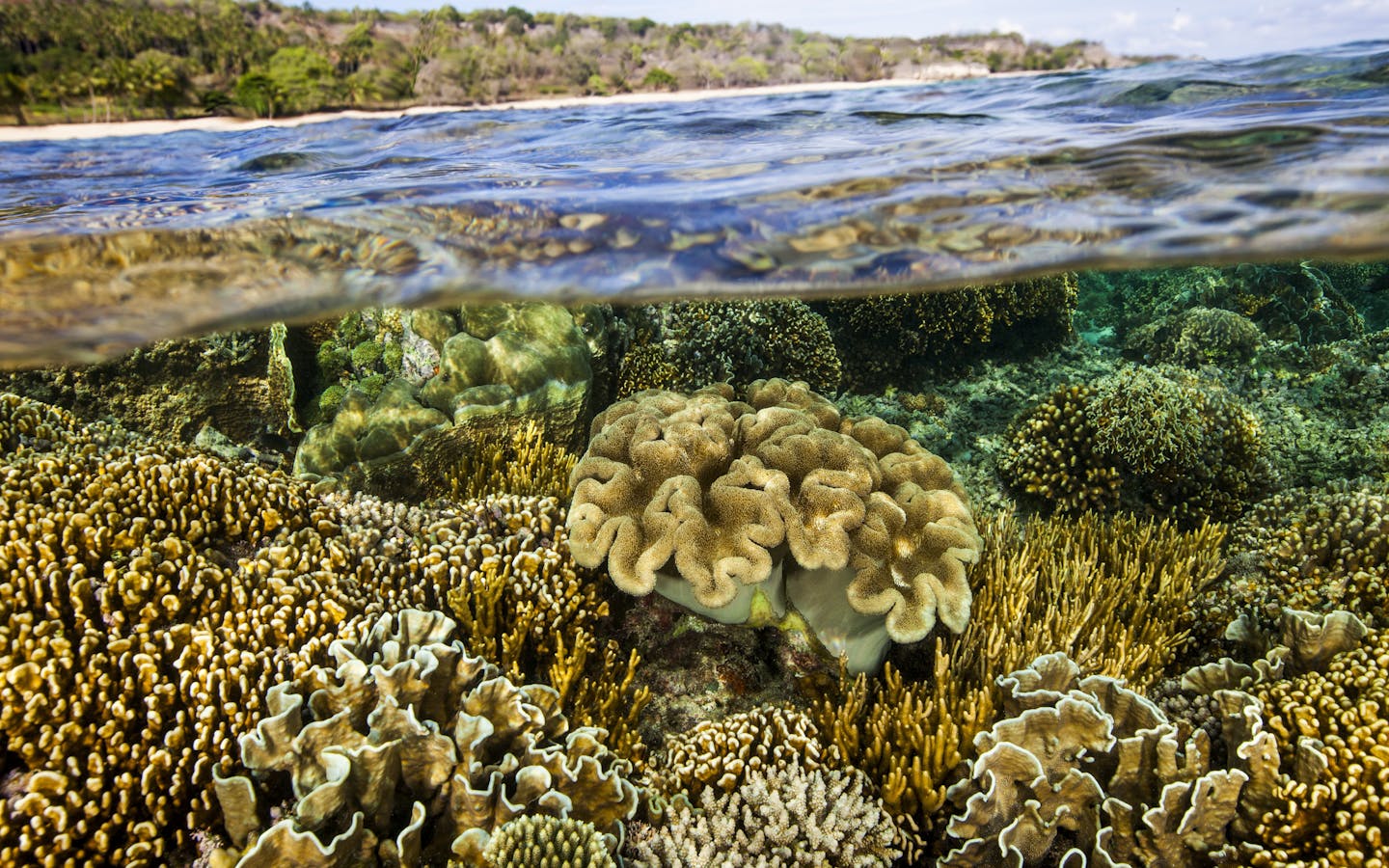As one of the youngest nations on Earth, with a median age of 19, Timor-Leste faces major development challenges. Yet with this comes a unique opportunity to forge an innovative and sustainable development pathway based on nature.
Recent biological surveys led by Conservation International have found Timor-Leste to possess some of the most biodiverse waters in the world. It's home to some 400 reef-building coral species, comparable to that of Australia’s Great Barrier Reef. Plus one-third of the world’s whales and dolphin species, as well as a population of endangered dugong can be seen close to shore. New species of fish, coral, orchids, gecko, and skink have been recently discovered, and much more remains to be explored.
Timorese depend on nature. Agriculture, fisheries, and forestry provide subsistence and employment to around 80% of the rapidly-growing population. Yet less than 0.02 percent of national spending is attributed to protecting and managing the environment due to its commitments to other pressing needs such as health, education, and infrastructure.
With expansive healthy reefs, beautiful forests and fascinating animals Timor-Leste holds great potential for sustainable tourism which would bring with it needed jobs and income as well as greater value for well-managed conservation areas.
Conservation International is working directly with communities, and local and national governments, to put the building blocks in place for a national protected area system. This will underpin sustainable development based on conservation and wise management of its natural wealth.
Timor-Leste must protect its magnificent biodiversity and vast natural resources to secure its future.
Our role

Conservation International's work in Timor-Leste began in 2009. We established our Timor-Leste office three years later under invitation from then-President Mr. Jose Ramos Horta.
Conservation International is the only international NGO to focus wholly on conservation and environmental issues in Timor-Leste. Our work aims to improve local food security, fight climate change and enhance livelihoods primarily through the establishment of a functioning national protected area network. CI works directly with government and local communities to research, implement, and improve the management of protected areas on land and at sea, through national parks and no-take zones. Through a blend of science, policy, and fieldwork, we further provide innovative solutions to key environmental issues such as unsustainable fishing practices, deforestation, and climate change.
The challenge

Realizing nature as a development solution
Close to half of the population live below the poverty line. With a rapidly growing population, this is expected to increase. With such immediate pressures, national funds are focused on health, education, and infrastructure and are as a result limited for conservation. Yet, nature-based development is one of the most practical solutions to the employment and economic challenges Timorese face. Nature underpins food security and the majority of current livelihood activities, and if well managed could form a needed sustainable tourism industry from ridge to reef. To achieve this, there is an immediate need to enforce existing regulations and to forge an effective Protected Area Network that drives efficiency, consistency and ensures benefits to the people of Timor-Leste.

Habitat degradation
Pre-independence, Timor-Leste lost one-third of its forests. Fragmentation of remaining habitats today is causing stresses to biodiversity we are yet to fully understand. Eighty-percent of the population depends on subsistence farming and fishing for survival, mostly as their only source of income. The need for fuelwood for an ever-growing population drives deforestation. Overexposed and damaged soil from land-use changes has caused landslides, sediment pollution, and affected agricultural lands.

Knowledge gaps and capacity limitations
Limited environmental education and enforcement in Timor-Leste have understandably led to low compliance with local and national environmental law. A lack of scientific knowledge of the nation's forests and marine life has hindered Timorese leaders from making well-informed decisions to protect and manage their natural resources. In addition, the people of Timor-Leste speak more than 13 separate languages, excluding the introduced Portuguese and Indonesian languages. This lack of a common language hampers locals from pursuing further education and participating in scientific data collection.
Our focus
-
Creating a Protected Area Network
Over the past 10 years, Conservation International has helped establish over 20 Marine Protected Areas and recently their first Marine Protected Area Network in Atauro Island. As a young nation, Timor-Leste requires the financial and technical capacity to ensure these areas are adequately protected.
© CI/Katie Bryden -
Supporting communities
Timor-Leste is one of the youngest and fastest-growing countries in the world. Half of the population is under 29 years old. As the need for employment opportunities increases, the country must address increasing pressure on its ecosystems.
© UN Photo/Martine Perret -
Marine conservation
Timor-Leste’s waters boast exceptional biodiversity, including extensive fisheries and healthy coral reefs. Twenty-five species of whales and dolphins frequent Timor’s waters — one of the highest records of cetaceans in the world.
© CI/Christian Ching -
Sustainable tourism
Timor-Leste has a high potential for community-based nature tourism. This is one of the most viable sustainable development pathways for this young nation in need of employment opportunities.
© Sijmon de Waal/Marine Photobank





